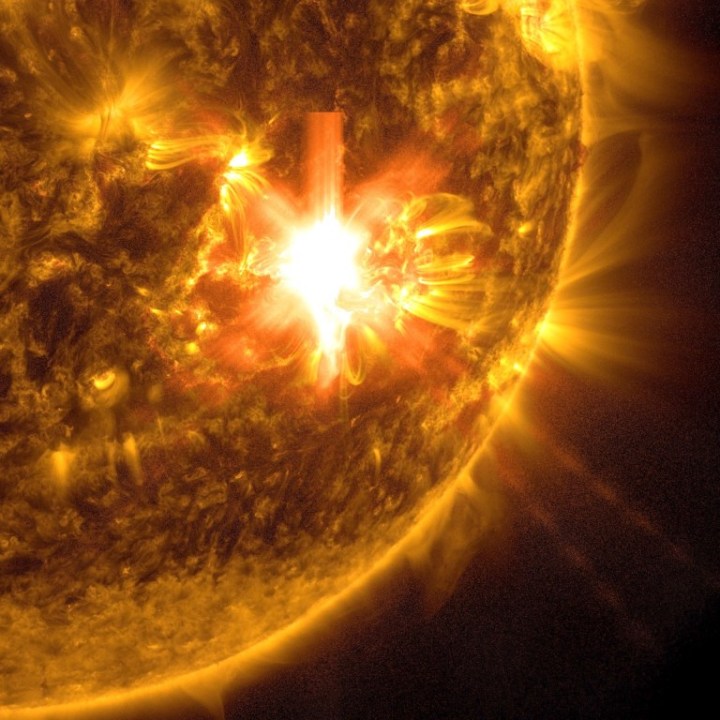
The sun has been unusually active this week, leading to stunning views of auroras across Europe and parts of the U.S. this weekend. On Friday, May 10, Earth was hit by the strongest solar storm in 20 years, and the activity has created light shows in the sky for many people who wouldn’t normally see them.
The sun is becoming more tempestuous as it ramps up to solar maximum, the point in its 11-year cycle when the sun is most active. When the sun lets out a huge burst of energy called a solar flare or a slower burst called a coronal mass ejection, this radiation spreads out through the solar system, and when it interacts with Earth’s atmosphere, it creates auroras like the Northern Lights. The sun has been producing powerful flares for the last several days, with the most recent observed just this afternoon.
Solar storms can cause problems with electronics, such as satellite communication systems, though they aren’t usually directly dangerous to those of us on the surface. At their most extreme, solar storms can cause blackouts on Earth as they can damage electrical grids, as happened with solar storms in 2003.

For most people, however, the recent increase in solar activity offers a chance to view auroras, which have been visible far outside the polar regions where they are most commonly seen. Beautiful images have been captured from the U.S., Canada, the U.K., Australia, and other places.
There should be more auroras visible tonight as well, so you should head out after dark and take a look. The appearance of auroras is hard to predict, but you’ll have better luck trying to view the lights if you are in a darker location, such as being away from city lights. You’ll need to have cloud-free skies and look after sundown for the best shot at seeing them.
Experts also advise to try taking photos of the auroras on your phone, as the camera sensors in phones are more sensitive to the particular wavelengths that auroras shine in than the human eye is. This is one of those rare occasions where photos might look even better than the view in real life.
Editors’ Recommendations
Services Marketplace – Listings, Bookings & Reviews
